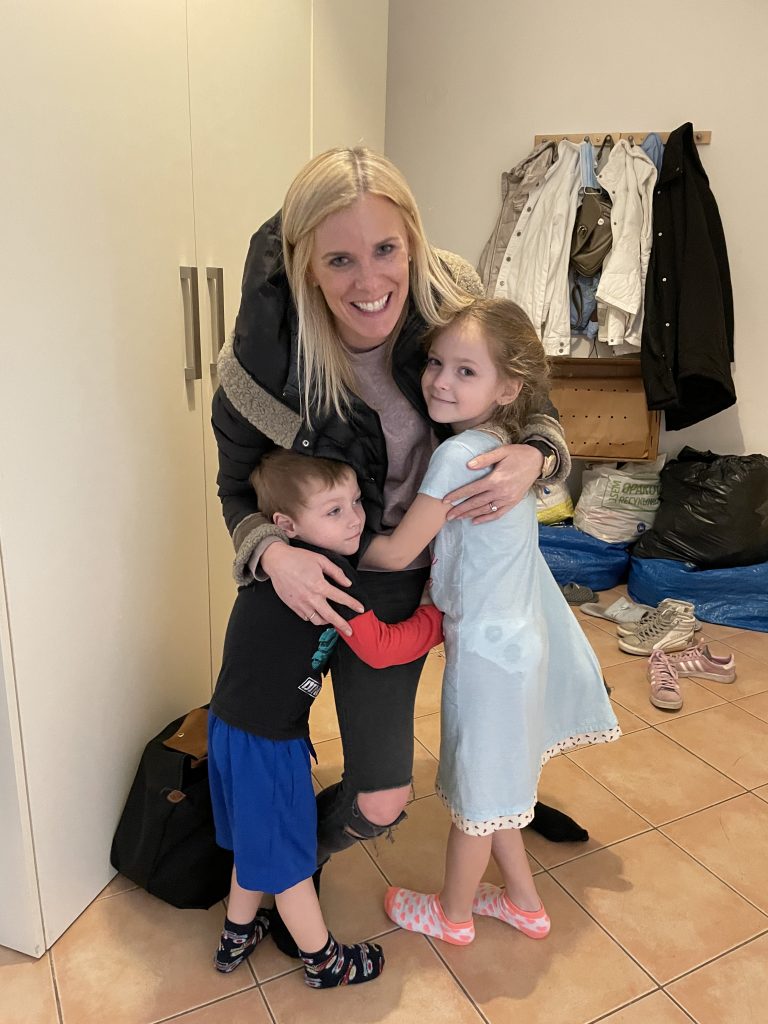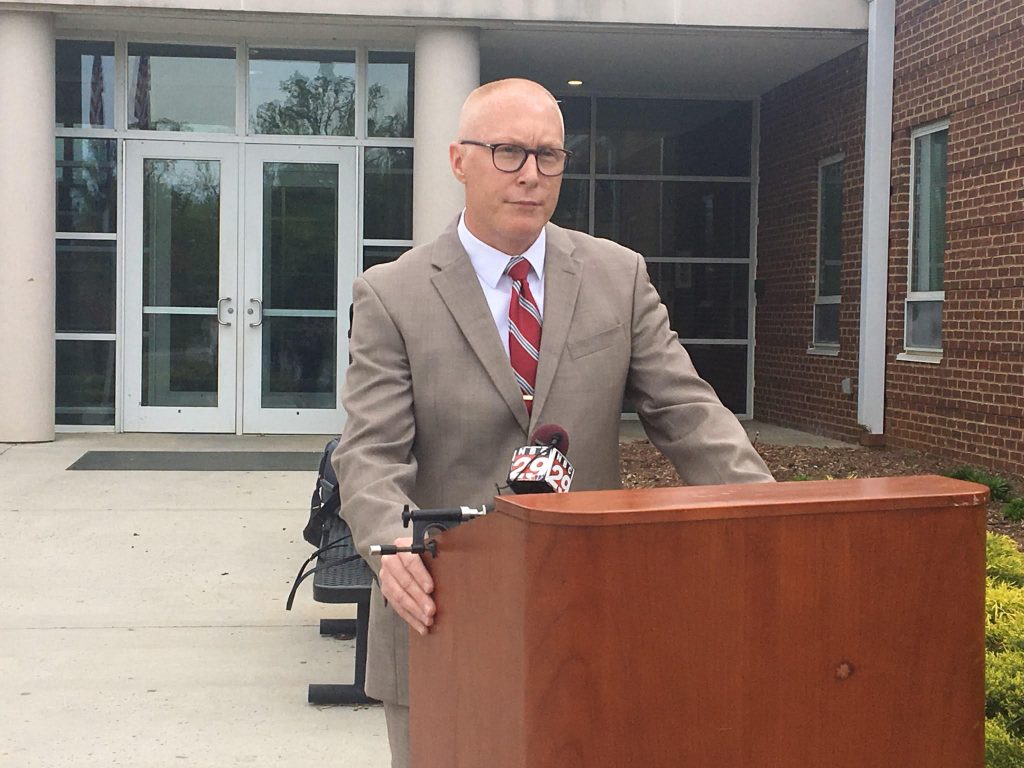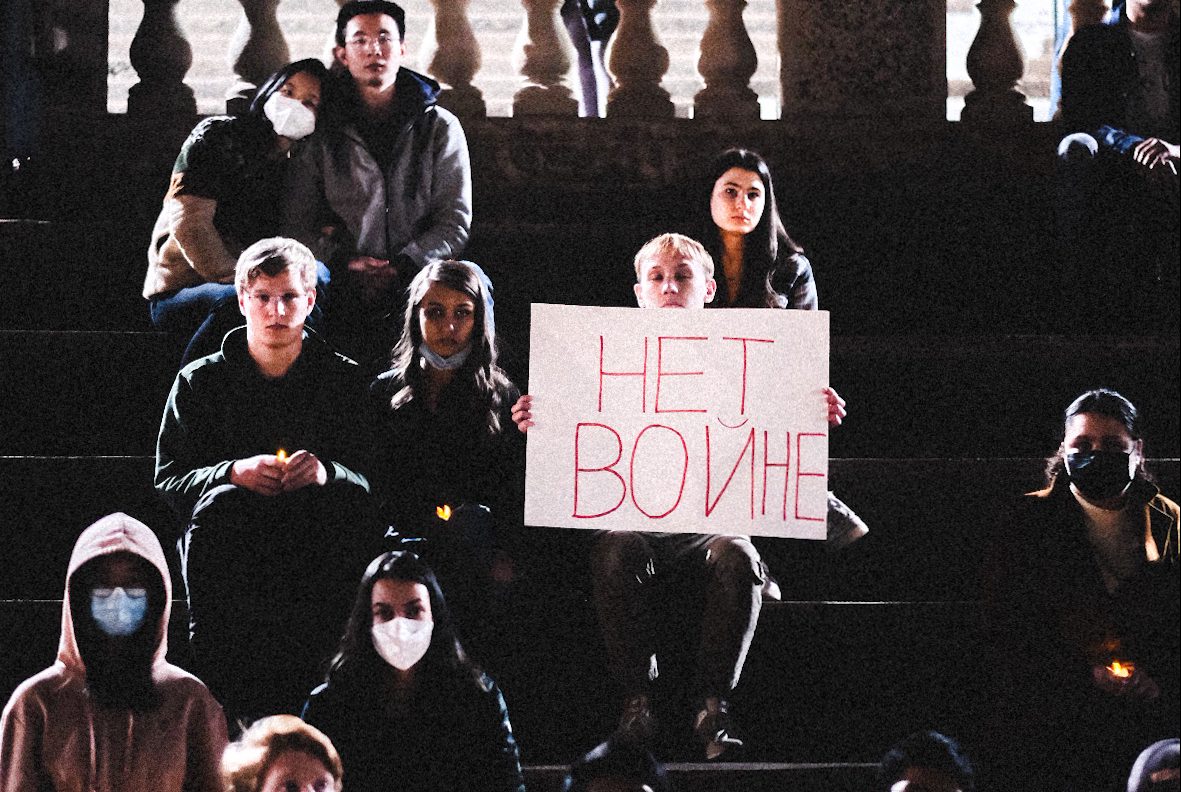Refuge for refugees
Twelve years after moving from Charlottesville to Prague, Kim Bianchini had built a real estate business with her husband when war in Ukraine broke out and refugees began flowing through Poland and into the Czech Republic.
“The families that were arriving were having a very hard time signing leases and finding places to stay for several reasons,” Bianchini says. “One being that landlords were very skeptical to rent to them because they weren’t sure how long families would stay.”
With her husband, Bianchini, who formerly owned the Petit Bebe boutique on the Downtown Mall, was able to place several mothers and children from Ukraine in vacant apartments they owned, but the need for additional housing grew more urgent as a growing number of refugees arrived in Prague.
“This is when I decided to form a nonprofit organization and reach out to the community and try to find properties for these families,” says Bianchini.
The organization she founded, Amity, has nonprofit status in the Czech Republic. Bianchini is working on acquiring 501(c)(3) status in the U.S. She has already secured 21 furnished apartments and has placed 75 women and children—but with an estimated 300,000 Ukrainian refugees already in the Czech Republic, the need for affordable housing is mounting.
The nonprofit’s website, amity.ngo, has an option for making donations in American dollars, and Bianchini says the money goes directly to assisting refugees.
“No one takes any salary or anything,” says Bianchini, who invites interested parties to contact her for more information about the people her charity is assisting.
“I can directly connect you with a specific family so you really know where the money you’re giving is going,” she says.

March for reproductive rights
Hundreds of protesters gathered in downtown Charlottesville on Saturday to protest an impending decision by the U.S. Supreme Court that would overturn Roe v. Wade and decades of constitutionally protected access to abortion.
The Bans Off Our Bodies event led marchers from the federal courthouse to the Free Speech Wall on the Downtown Mall, and was part of a nationwide response to the draft opinion that leaked earlier this month.
Speakers included UVA Law Professor Anne Coughlin, Deborah Arenstein of the Blue Ridge Abortion Fund, and Josh Throneburg, Democratic congressional candidate for Virginia’s 5th District.
In a release announcing the event, attorney Andre Hakes warned that “the demise of Roe should be of concern to everyone who loves freedom. The rights to contraception, interracial marriage, and gay marriage are all based on the same interrelated legal concepts of privacy, due process, and equal protection… all these rights, and others, are at risk if Roe is overturned.”
In brief
New hires
After more than a year without a director of human resources, the City of Charlottesville has appointed Mary Ann Hardie to the position. It has also promoted longtime employees Misty Graves to director of human services, and David Dillehunt—who has been serving as the city’s interim communications director since January, following Brian Wheeler’s resignation last fall—to deputy director of communications.
Union bust
In a 4-2 vote, the Albemarle County School Board rejected a collective bargaining resolution proposed by the Albemarle Education Association during a meeting last week. Board members who voted against the resolution—which has received support from more than two-thirds of the division’s teachers, transportation staff, and school nurses—claimed the new state legislation allowing public employees to unionize did not provide adequate guidance, and wanted to see how other school divisions engage in collective bargaining before moving forward. Instead, the board unanimously voted to allow Superintendent Matt Haas to look into alternatives to collective bargaining, and report back in 90 days.

No more Dewberry
The Dewberry Group, owners of the half-finished Dewberry Living building, will have to give the downtown eyesore a new name—and pay $43 million in damages. In 2020, Dewberry Engineers filed a lawsuit against the Atlanta-based real estate company for violating a 2007 confidential settlement agreement that prohibited it from using the name Dewberry, reports The Daily Progress. Last week, a federal judge ruled that the Dewberry Group breached the trademark agreement when it changed the vacant building’s name from The Landmark Hotel to The Dewberry Hotel, after purchasing the abandoned project in 2012—and again when it changed its name from The Laramore to Dewberry Living in 2020.

